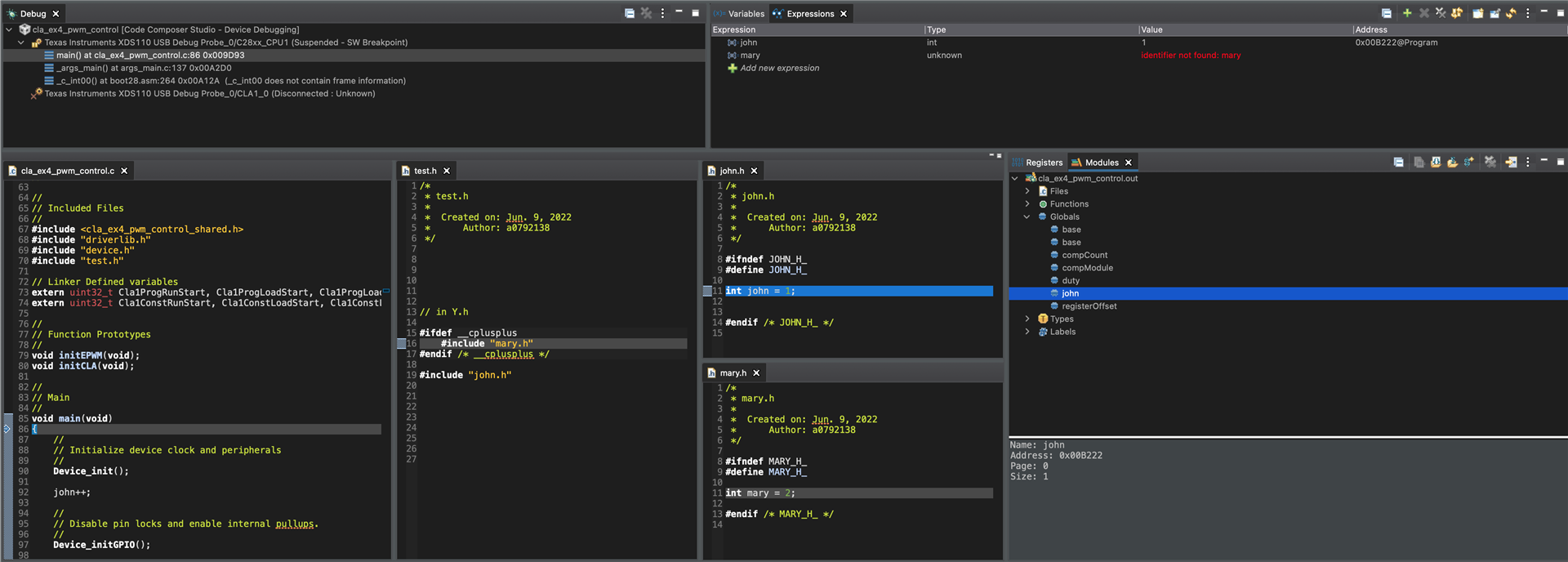Hi,
I have the x.h, which runs well with the GCC compiler. but gives an error with the C compiler. The error is the below thread. https://e2e.ti.com/support/microcontrollers/c2000-microcontrollers-group/c2000/f/c2000-microcontrollers-forum/1106808/tms320f28379d-shift-count-is-too-large/4103321?tisearch=e2e-sitesearch&keymatch=%20user%3A484362#4103321
I tried to solve this as
// in Y.h \\ header file
#ifdef __cplusplus
extern "C" {
#endif /* __cplusplus */
#include "x.h"
#ifdef __cplusplus
} /* extern "C" */
#endif /* __cplusplus */
but it is ignoring the content of x.h file.
So, 1. Is there any other way than to modify the x.h to remove the errors of the thread shown above ?
2. is __cplusplus not known by CCS ?
3. how can I tell the compiler to make unsigned int as 32 bit wide instead of 16 bit ? is it even possible ?
I am using CCS10 and v20.2.2.LTS compiler.
Thanking you.
VP






